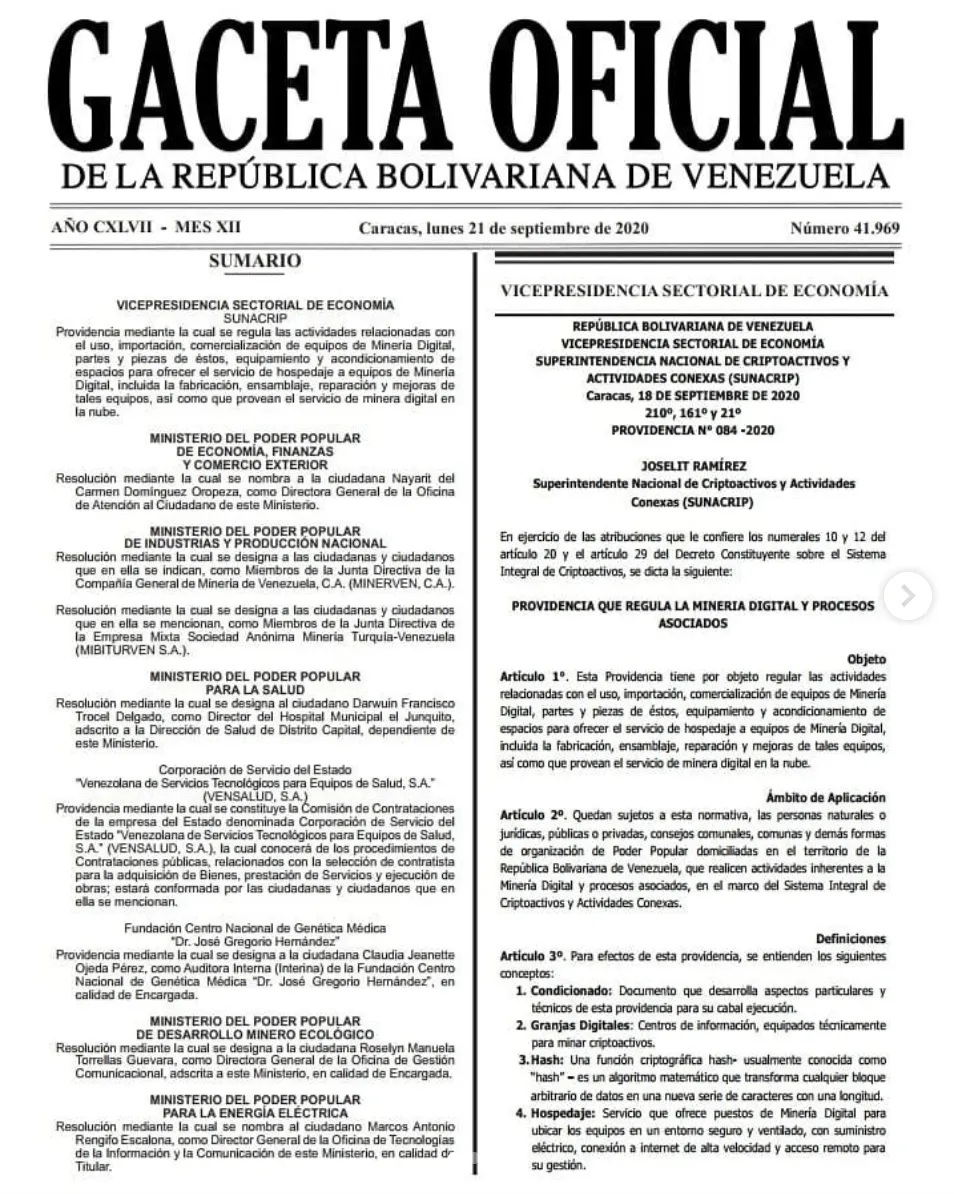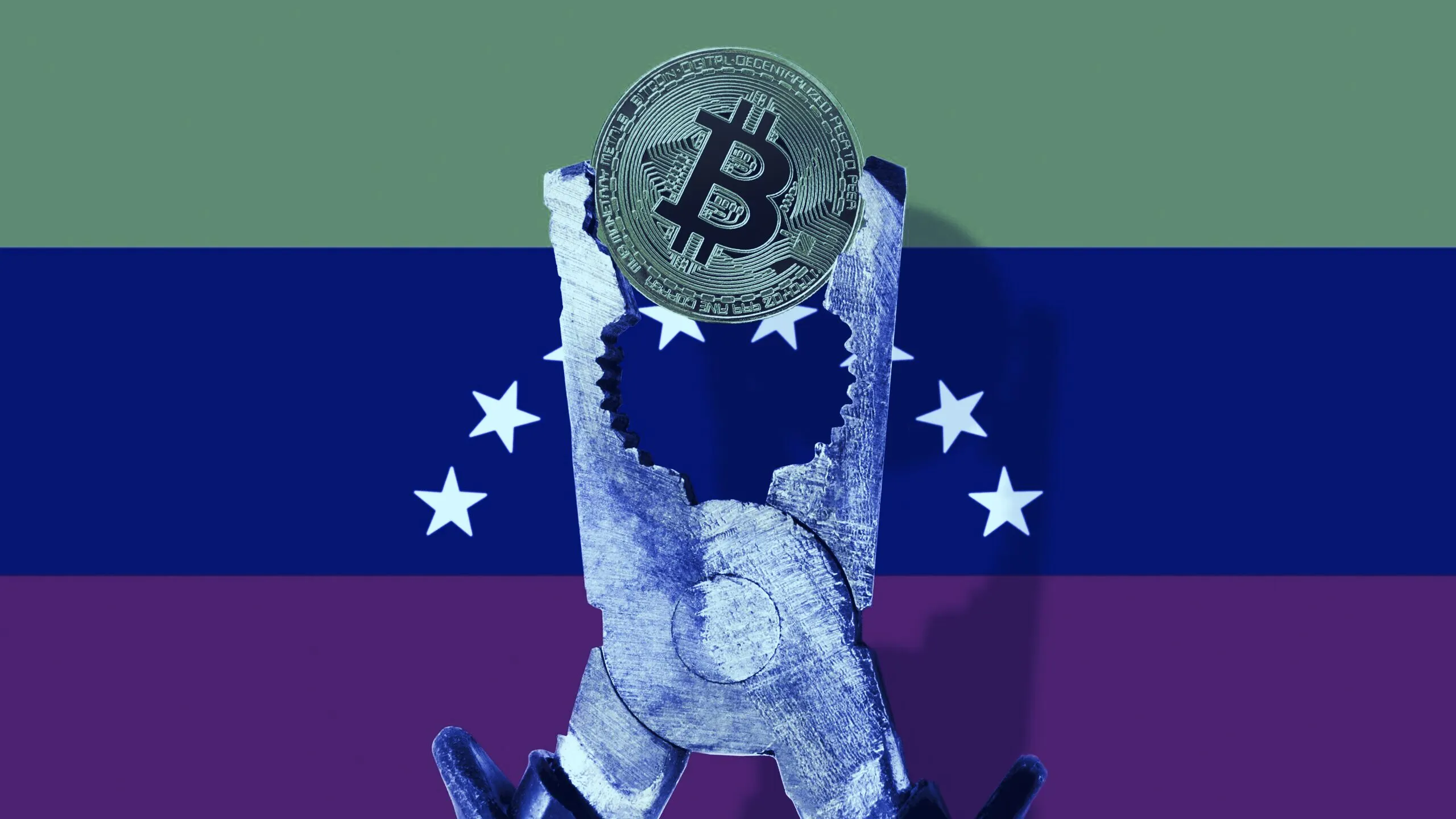In brief
- A new law mandates that all aspects of Bitcoin mining in Venezuelan are to be controlled by the state.
- ASIC manufacturing, mining farm construction, the import of equipment, and the distribution of funds will all be regulated under the new law.
- Cryptocurrency mining is legal in Venezuela provided a license is obtained, but mistrust of the authorities is widespread.
A decree, published on Monday by the Venezuelan authorities, mandates that all Bitcoin miners join a national pool, and imposes regulations on every aspect of their activity, according to local news outlet Criptonoticias.
Venezuela’s cheap electricity and inflationary economic policies have made it the premier spot to mine Bitcoin in South America.
While the new decree proclaims the legalization of crypto mining, it joins a raft of recent legislation that increasingly seeks to centralize and control the mining of the world’s most popular cryptocurrency on national territory.

ASIC manufacturing, mining farm construction, the import of equipment, and the distribution of funds will all be regulated under the law, issued by the National Superintendency of Crypto Assets and Related Activities (SUNACRIP.)
The authorities claim that Bitcoin mining has paved the way for increased speculation on the value of the dollar and circumvention on the country's financial controls. As such, a Registry of Miners (RIM) has been established to process licenses via the web. It will include equipment manufacturers and those involved in constructing mining farms. Anyone operating outside the pool will be risking a hefty fine.
The registry has been the source of alarm and frustration for crypto entrepreneurs in the country. They fear that disclosing their income and activity might attract the attention of criminals and corrupt government officials, and have complained about extortion attempts.
The state’s attempts to centralize mining also go against the core philosophy of Bitcoin. A state-controlled mining operation is vulnerable to the pool operator (presumably the state) collecting taxes from the miners, freezing their funds, and delaying payment—the very freedoms Bitcoin is meant to offer.

